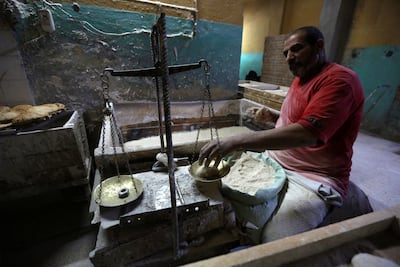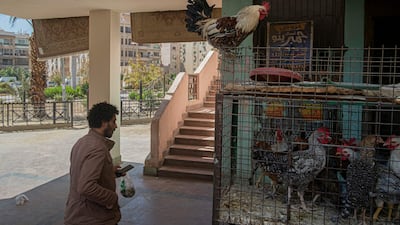With its economy under pressure from the fallout of the war in Ukraine, Egypt is in talks with the International Monetary Fund on possible support from the lender.
The confidential talks are at a preliminary stage and delegates from the two sides are looking at several options, including a standby loan or a credit line that can be tapped if needed.
Fitch Ratings said this week that a new IMF programme for Egypt is among “the policy options available to the Egyptian authorities to shore up the country’s external position". There is also the possibility of Egypt’s Gulf allies using an influx of funds from higher oil prices to help Cairo, it said.
Egypt’s Finance Ministry and central bank are yet to publicly comment on the talks, but there have been reports in recent days that the government intended to seek help from the IMF to help it weather the storm.
The IMF’s mission chief for Egypt, Celine Allard, would not confirm whether the talks were continuing but said “we continue to closely monitor the situation and remain closely engaged with the Egyptian authorities".
Egypt’s contact with the IMF comes at a time when the Ukraine war, higher energy prices and supply chain disruption caused by the Covid-19 pandemic are combining to push food prices higher, especially wheat-based items such as bread, a main staple for most of the country’s 102 million people.

Also affected by the war is Egypt’s vital tourism sector that contributes more than 10 per cent of its GDP and is heavily dependent on visits from Russia and Ukraine.
Egypt, where about 30 per cent of the population lives below the poverty line, buys 80 per cent of its wheat – 13 million tonnes in 2021 – from Russia and Ukraine.
President Abdel Fattah El Sisi, the driving force behind an ambitious economic reform programme, has ordered his government to come up with a fixed price for the “free-market" bread consumed by about 40 million people. His comment came after the price of bread rose by up to 50 per cent in recent days.
Many people in Egypt receive much cheaper bread using subsidised food cards issued by the state.
The government is also tightening the monitoring of retail food markets to prevent traders from hoarding essential foodstuffs and is threatening to prosecute offenders. Last week, it ordered a three-month ban on the export of essential foodstuffs, including wheat, in the hope that sufficient supplies would keep prices in check.
Higher cost of living has been a major source of alarm to most Egyptians and the government is at pains to ensure that discontent does not boil over into dissent.
So far, the government has not changed the price of fuel at the pump or raised the price of bread and other essential food items available to the 60 million covered by state food cards.
Egypt has twice gone to the IMF for help since 2016, when it secured a $12 billion loan as part of a far-reaching reform programme that featured a devaluation of its currency, lifting state subsidies on essential services and introducing a wide range of taxes.
Long avoided by previous Egyptian leaders over fear of unrest, the measures triggered a wave of price increases that hit the middle and poor classes the hardest, but won lavish accolades from donors and international financial agencies.
In 2020, Egypt received a $5.2bn standby arrangement from the IMF along with $2.8bn under the lender’s Rapid Financing Instrument to cope with the fallout from the coronavirus pandemic.


